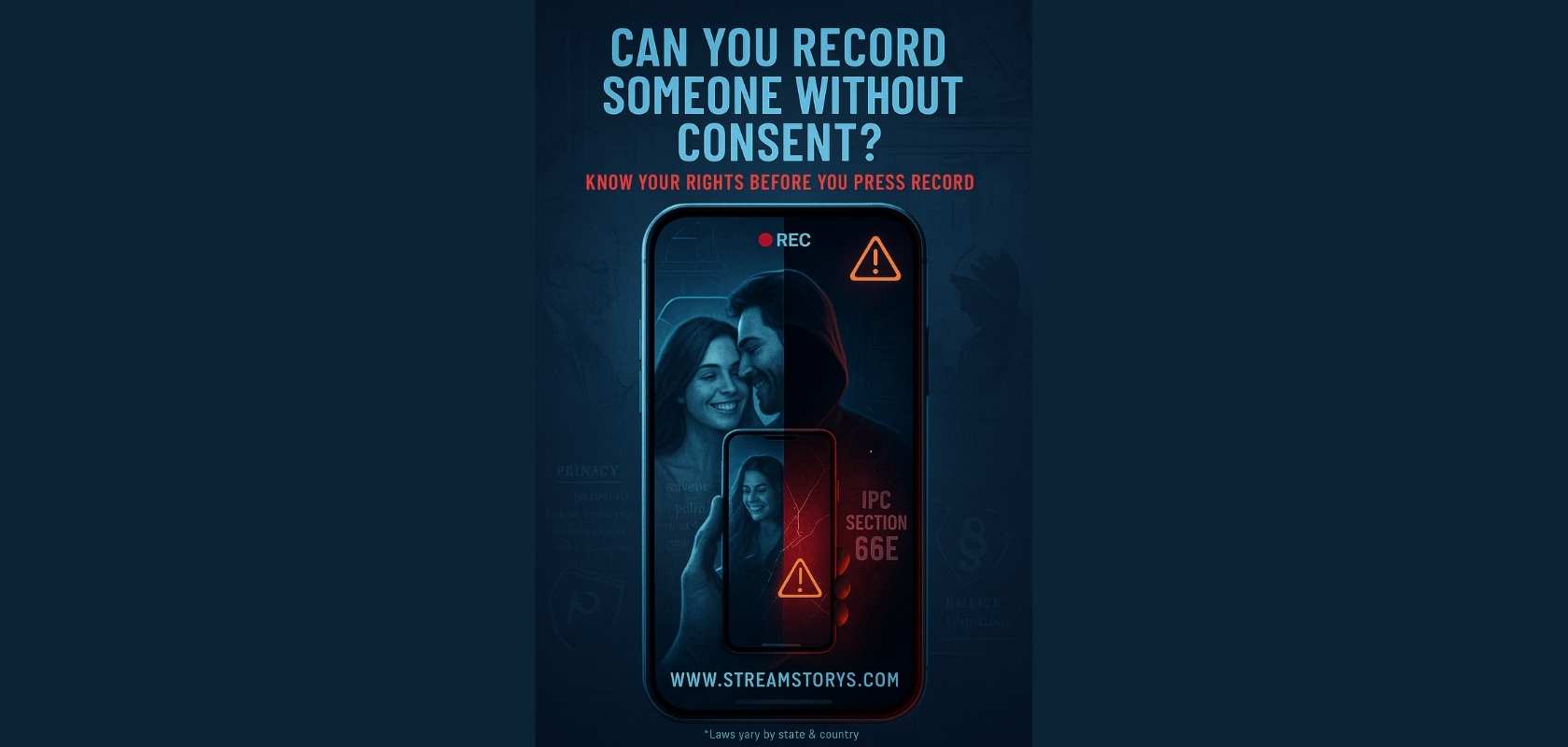
Can you record someone without consent?
Secretly recording a call or a conversation?
Think twice — you might be breaking the law.
Or… maybe not.
The truth is, India’s law around recording without consent is not what most people think.
Let’s break it down, legally and clearly — and yes, you’re in for a few surprises.
🎙️ 1. Call Recording Without Consent Is Not Always Illegal in India
The surprise:
In India, if you are part of the conversation, you can legally record it — even without informing the other person.
✅ Example: You record a call with your boss where he threatens to fire you unfairly. That’s legal evidence — because you were a participant.
❌ But: If you secretly tap or record other people’s calls where you’re not involved, that’s illegal — and can be considered wiretapping or breach of privacy.
📹 2. Video Recording Without Consent Is a Gray Area
India does not have a specific law banning video recording in public spaces.
So, filming someone in public (like at a protest, shop, or street) is usually allowed.
But inside private places (like bedrooms, bathrooms, offices, homes), recording someone without consent can be:
A violation of privacy
A ground for a civil or criminal case
An offense under Section 354C IPC (voyeurism) in certain cases
Pro tip: Recording is not the problem — how you use it is what matters most.
⚖️ 3. Recorded Evidence Can Be Used in Court – If It's Relevant
Many people think “secret recordings won’t stand in court.”
Wrong.
Indian courts have accepted secretly recorded calls and videos as evidence if:
-
They are not tampered
-
The recorder is a participant
-
The content is relevant to the case
Example: A woman recorded her abusive husband during an argument. The recording was accepted in court as proof of mental cruelty.
🚫 4. Illegally Obtained Recordings Can Backfire
If you hack, tap phones, or record strangers without their knowledge, you may:
-
Violate Section 66E of the IT Act (privacy breach)
-
Be sued for defamation or harassment
-
Face jail time in serious voyeurism or spying cases
Section 66E: Punishes capturing, publishing, or transmitting images of a person’s private area without consent — up to 3 years in jail + fine.
🧠 Final Word: Yes, You Can Record — But Only If You're Smart About It
Here’s the simple test:
Were you part of the conversation? ✅
Is the content related to protecting your rights? ✅
Are you not sharing it publicly to shame someone? ✅
Then you're probably in the clear.
But if you're spying, snooping, or exposing someone online, you’re walking into legal danger.
🛠️ Quick Summary:
✅ Recording your own call — Legal
❌ Recording others’ calls secretly — Illegal
✅ Recording in public — Mostly Legal
❌ Recording in private space — Needs Consent
✅ Using as evidence in court — Allowed if relevant
❌ Publishing online to shame — Risky & Illegal
⚠️ Don’t Assume. Always Learn.
Indian law around privacy and recording is still evolving — and one mistake can land you in court.